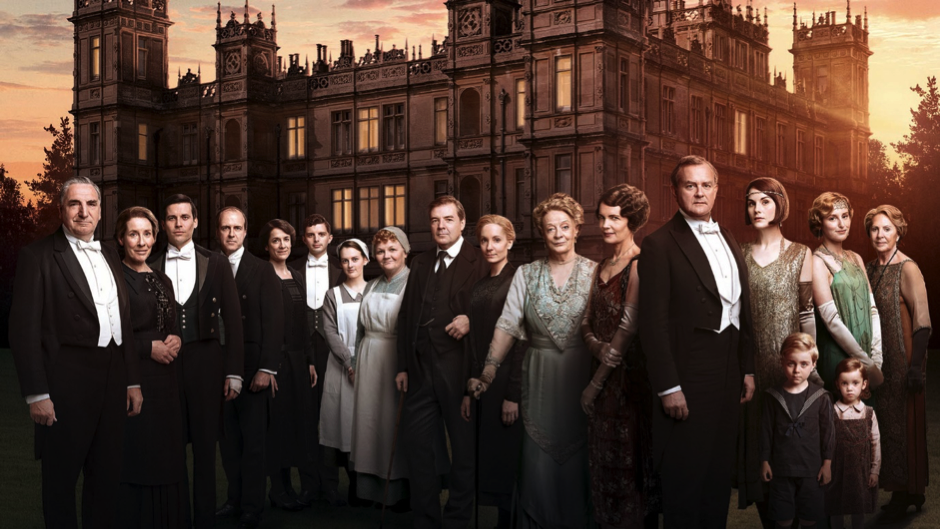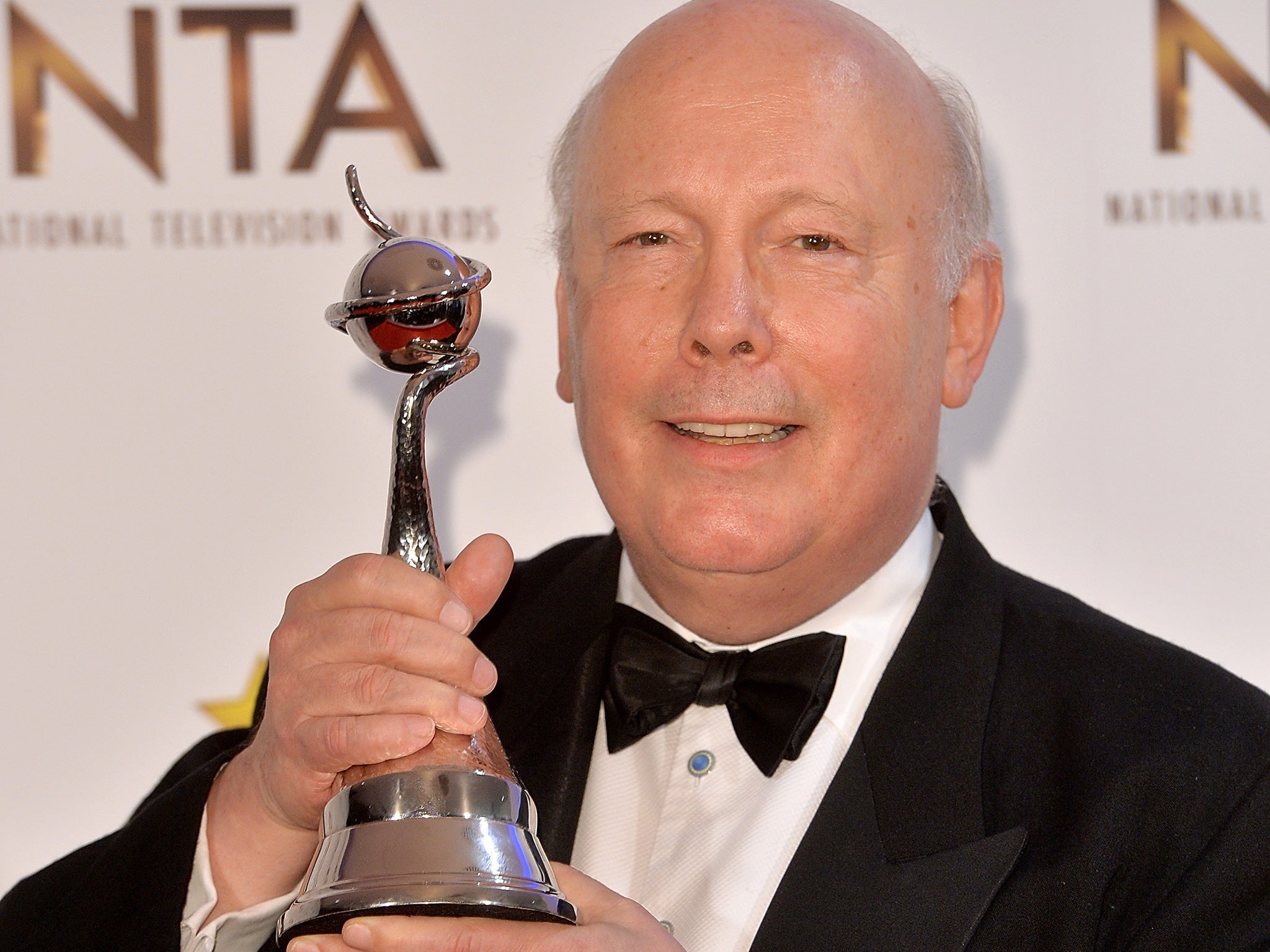Why only upper-crust British TV dramas like The Crown and Downtown Abbey become hits in America
The success of 'The Crown' and 'The Night Manager' at the Golden Globes has led people to believe British TV drama is making a breakthrough in America, but there hasn't been any major UK-produced hit outside of upper-class period drama

Your support helps us to tell the story
From reproductive rights to climate change to Big Tech, The Independent is on the ground when the story is developing. Whether it's investigating the financials of Elon Musk's pro-Trump PAC or producing our latest documentary, 'The A Word', which shines a light on the American women fighting for reproductive rights, we know how important it is to parse out the facts from the messaging.
At such a critical moment in US history, we need reporters on the ground. Your donation allows us to keep sending journalists to speak to both sides of the story.
The Independent is trusted by Americans across the entire political spectrum. And unlike many other quality news outlets, we choose not to lock Americans out of our reporting and analysis with paywalls. We believe quality journalism should be available to everyone, paid for by those who can afford it.
Your support makes all the difference.At the 54th Academy Awards back in 1982, the late Colin Welland, the Chariots of Fire screenwriter, proclaimed that: “The British are coming.”
As we know, it didn’t quite work out the way Welland hoped. The rest of the 1980s saw a dearth of global box office hits for the UK film industry, compounded by David Puttnam’s short-lived 14-month stint as the head of Columbia Pictures, which seemed to increase the perception of hubris on the part of the British.
Now, some 35 years later, we are hearing a similar refrain – this time about the UK’s television drama.
The success of both The Night Manager (BBC1; AMC in the USA) and The Crown (Netflix) at the recent Golden Globes, together with a purple patch in home-grown UK drama and the growth of high-end funding for TV series, has led some to hope for a British breakthrough in the US.

At this point, we need a reality check. Despite the incredible success of British acting talent in the States, there has yet to be any major UK-produced hit outside the relatively narrow confines of upper-class period drama.
After six hit seasons, Downton Abbey became the top PBS drama of all time – the most-viewed drama in the channel’s 45 years. Across season 4, at the peak of its popularity, Downton Abbey attracted a weekly average audience of 13.3 million viewers.
But when we examine the most recent crop of UK dramas playing in the US, a different picture emerges.
Despite the three Golden Globes achieved by The Night Manager, the mini-series didn’t set any ratings records for the US basic cable broadcaster AMC.

In terms of audiences, only 0.8m viewers tuned into the show, a figure dwarfed by the 11.9m viewers who watched the first nine episodes of the current series of The Walking Dead, AMC’s biggest hit – a ‘ratings machine’, to quote President Donald Trump.

Watch Apple TV+ free for 7 days
New subscribers only. £8.99/mo. after free trial. Plan auto-renews until cancelled

Watch Apple TV+ free for 7 days
New subscribers only. £8.99/mo. after free trial. Plan auto-renews until cancelled
HBO’s artsy The Young Pope (transmitted by Sky Atlantic in the UK) has garnered some vocal supporters in the US and the UK, but with linear audiences of 0.6m (and far less than that in the UK) it’s no Game of Thrones.
Even when viewing across all platforms is included, The Young Pope’s 4.7m audience fell far short of season one of Westworld, which pulled in around 11.7m.
As HBO apparently picked up The Young Pope for comparative chickenfeed, the theory is that it may well return; audiences for the series were high for co-producer Sky Italia. This leaves Sky Atlantic in the unfortunate position of possibly having to fork out for a ratings dud if they are committed to a second season by their partners.

Sky also came a cropper with You, Me & The Apocalypse (2015, UK, 2016 US), a comedy-drama from Beaver Falls (E4) writer Iain Hollands that played to underwhelming audiences for NBC (2.9m) in the US and for Sky here (0.7m) despite a cast that included familiar faces such as Rob Lowe, Diana Rigg, Megan Mullally, Pauline Quirke and Jenna Fischer.
Added to these relative misfires has been the initial failure of season two of Sky Atlantic’s Nordic Noir-style original Fortitude to find a US broadcaster – probably not aided by a wilting UK performance, currently tracking below 90,000 ‘live’ viewers over episodes 2 to 4. At a cost of around £3m an episode, that’s a serious lack of bang for Sky’s buck.
It has just been announced that Amazon Prime (rather than a broadcaster as such) in the US have picked up season two of Fortitude to be released as an Amazon Original Series later this year.
Its first season was transmitted by the now defunct Pivot channel in the States, but since they didn’t publish ratings, we have no idea whether the show performed well for them, or not.
Other British shows such as ITV’s Beowulf (Esquire Network), Jekyll & Hyde (CBC) and Houdini & Doyle (Fox) all failed to make an impression both in the UK and North America, each series folding after one solitary season.

In the light of these failures, it’s probably fair to say that any talk of a ‘British invasion’ is premature, and that the UK’s real appeal to the US appears to be in class-conscious period drama, as evidenced by the success of the aforementioned Downton Abbey, together with Mr Selfridge (ITV) Poldark (BBC1), Victoria (ITV) on PBS and budget-busting newcomer The Crown (Netflix).
As Netflix doesn't release figures it’s not known how many viewers watched The Crown, but awards (Best Drama and Best Actress for Claire Foy’s portrayal of a young Elizabeth II at the Golden Globes) and presumed high viewing levels recorded internally have now guaranteed the royal drama at least two more seasons.
One casualty of the success of The Crown appears to have been Amazon's expensive Parisian period fashion drama The Collection, which was released two months before its competitor but failed to generate much buzz: there’s no word yet on a second season.

Reviews were generally appreciative of the acting and period detail but the scripting was felt to be lacklustre and, as the show was set in France and included elements of a crime drama, it doesn’t really fit the ‘posh drama’ model.
If Crown producer Left Bank’s current series The Halycon (ITV) succeeds in the US (broadcaster as yet tbc) it will appear that UK has rather depressingly pigeon-holed itself as a kind of televisual version of Merchant Ivory, doling out these finely crafted snobbish truffles to an always-appreciative audience.
Possibly with that in mind, NBC have cut out the middle man and hired Downton creator Julian Fellowes for his new drama series The Gilded Age, a New York high society fest set in the 1880s, which may feature possible crossovers from younger versions of Downton characters, presumably in the city looking for marriage prospects to shore up their ancestral estates.

So why does Fellowes think British period drama appeals to US audiences? A few years ago he commented: “Americans are wonderful film actors – the best in the world – but they are a very contemporary race and they look forward all the time. There is something about period drama where they tend to go into a strange place called ‘period’ where people wear funny clothes.”
“I think our actors have a kind of understanding of period. For Europeans, the past is in them as well as the present and I think they are at ease in that genre in a way that the Americans find harder.”
Viewers of recent US period dramas such as the rebooted Roots (History), Mercy Street (PBS), The Knick (Cinemax), The Book of Negroes (BET), Boardwalk Empire (HBO), Manhattan (WGN America), and further back 2008’s multi-award winning John Adams and 2004-06’s Deadwood, may beg to differ.
Join our commenting forum
Join thought-provoking conversations, follow other Independent readers and see their replies
Comments